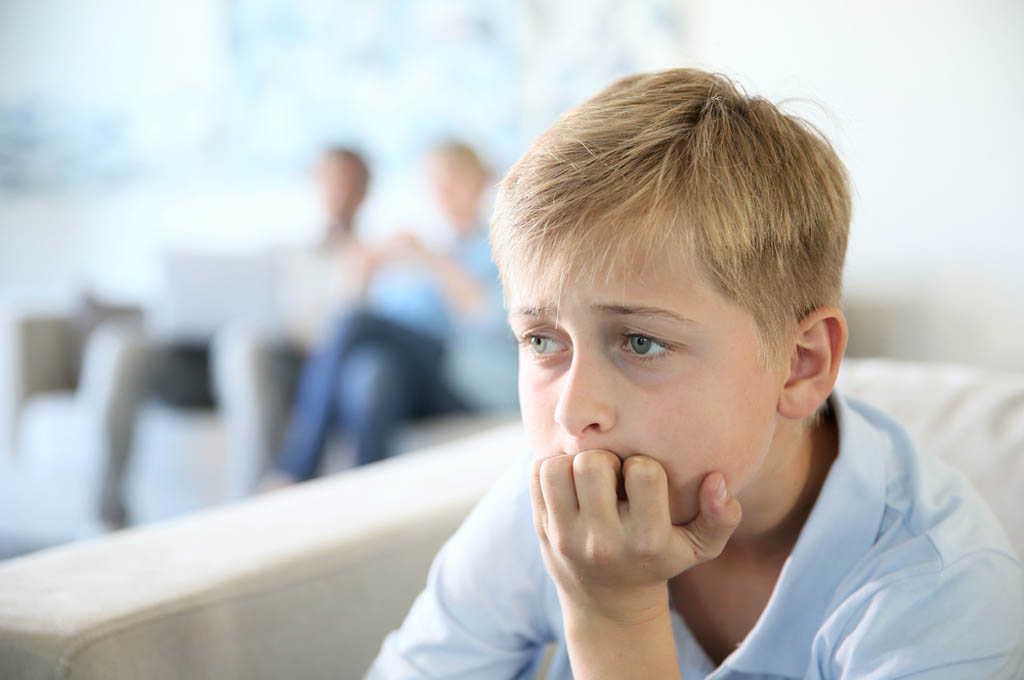Children begin to perceive changes in their immediate surroundings as soon as they come into this world. And by the time they get to preschool, they will have developed high levels of perceptions. As parents, we try to shield our children from unpleasantness and ugliness in this world.
But most people will have realised that it’s almost impossible to keep their pre-schoolers in the dark about the COVID-19 situation. We also believe that this is something parents shouldn’t try either. While you need to help children get through self-isolation, there are other ways of doing things rather than keeping them in the dark. That will only pique their curiosity and probably even make them more anxious.
The Effects of Stress on Pre-schoolers
Toddlers show their stress and anxiousness very differently than adults, and likely the signs will not be very evident either. Anxiety in young children can manifest in different ways. If they see you watching pandemic-related news all the time or hear you speaking in hushed tones about the crises and your work or finance-related concerns, it can have a significant impact on their psyche.
You may see them becoming irritable very often or find that they throw a lot of tantrums, are obstinate about what they want or don’t want. Sometimes the stress and anxiousness can also affect their sleep, appetite and overall health. Here are some simple ways to maintain positivity in your children during self-isolation and all the other impacts that come with it.
1. Make Sure That the Information You Provide Is Age-Appropriate
As mentioned earlier, you shouldn’t attempt to hide facts about the pandemic from them. But you need to be cautious about the reports or news you share with them. Make sure that the information you provide them is age-appropriate.
The facts that you provide should be filtered, simplified and what you tell them about the pandemic and self-isolation needs to be a watered-down version of the actual situation. While the fear aspect isn’t as strong in children as it is in adults, too much talk about the pandemic can affect them severely and will overwhelm them. Provide facts that will help them to avoid misconceptions or confusion.
2. Tell Them Why Self-Isolation Is Important, Without Alarming Them
Explain to them how self-isolation is one of the best ways to keep them and the rest of the family safe. You can tell them this in a way they can understand it. Children have an elementary idea of what’s good and what’s bad and what can harm them.
You need to work on that understanding and tell them about the pandemic, its effects without alarming them in any way. It’s best to say to them that till the danger recedes, the safest place is home. Tell them that self-isolation is a way to fight the virus and keep everyone healthy.
There is a fundamental reason why you need to handle this situation delicately. You do not want your child to become phobic about the COVID-19 situation. Once this worrying situation blows over, and it’s time for them to start attending preschool again, you don’t want them to be reluctant or anxious about doing so. If they harbour excessive fears about the pandemic, you may find yourself in a tight spot when trying to get them back to attending school.
3. Maintain Positivity
As adults, we have our worries, stresses and concerns, all of which are valid. But we can handle these better than children in most cases. Young children tend to feel anxious and helpless about the changes in routine and the self-isolation measures that have been imposed on them. After all, their life is all about playing with friends, going to school every day, or the park etc.
Since they are now unable to do all these things and are restricted to staying and playing in their home that can cause distress, and you must help them stay positive. You can do this by making them feel like they are brave soldiers that are fighting a battle, instead of someone who is under threat. For example, during self-isolation, instead of saying “We can’t go to the park” say “We will beat the virus if we stay indoors”.
4. Involve Them in Household Chores
As a parent, you are under the constant stress of making sure your family is protected against the pandemic while maintaining a work-life balance during this crisis. Many people are now working from home, and meeting professional commitments amidst handling multiple family chores can be tough, especially for extended periods.
If you have older children, you can assign some basic household chores to them like clearing up their rooms, putting their toys away, making their beds etc. Younger children can also do their bit; have them help the older child or you when you are working around the house. These chores also help them expand all that pent-up energy and keep them physically active, which doesn’t make staying indoors seem all that bad.
5. Stay Calm and Be Reassuring
Always reassure your children; do not disrupt their routine as this will help them feel more in control about the situation. Your children keenly observe and absorb the way you respond to the changing landscape. So you need to be a role model; stay calm and steady in turmoil to ensure they stay that way as well. While the pandemic situation has disrupted our lives in more ways than one, how we help our children through it is entirely in our hands.
We at Clovel Childcare and Early Learning Centre, provide a very nurturing environment for children to learn and grow. For any information about our Educational Programs, give us a call at 02 9199 0294 or fill in this contact us form
Thanks for reading,
Clovel Childcare
1300 863 986











